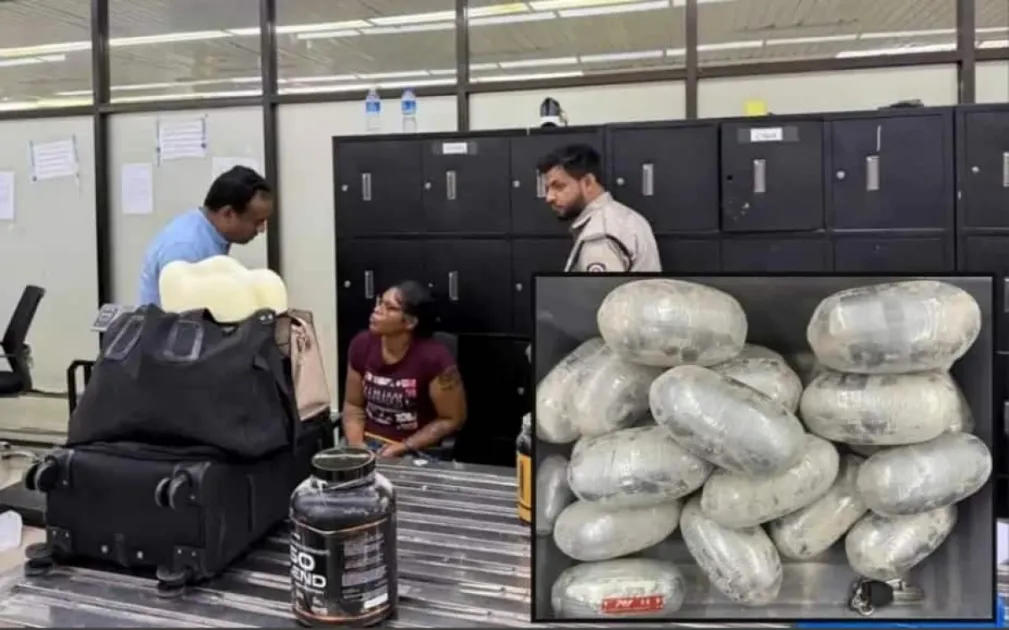Guyanese Woman Faces Death Penalty in Record $11M Bangladesh Drug Bust
A 63-year-old Guyanese woman faces death penalty in Bangladesh for trafficking $11.1M worth of cocaine, marking the largest drug seizure in the country's history and highlighting stark international legal contrasts.

Airport security officials display seized cocaine worth $11.1M from Guyanese trafficker at Hazrat Shahjalal International Airport
Major Drug Trafficking Case Highlights International Legal Disparities
A 63-year-old Guyanese woman, Karen Petula Stuffle, faces potential capital punishment in Bangladesh after being caught with the largest cocaine trafficking shipment in the country's history, valued at $11.1 million USD. The case has drawn attention to Guyana's growing international challenges and regional security concerns.
Details of the Record-Breaking Seizure
Authorities at Hazrat Shahjalal International Airport intercepted Stuffle on August 26, discovering 8.66 kg of cocaine concealed in three plastic jars containing 22 oval-shaped foil-wrapped packages. The arrest occurred after she arrived on a Qatar Airways flight from Doha.
Deputy Director of Customs Intelligence and Investigation, Sonia Akter, confirmed that Stuffle was apprehended after completing her arrival visa formalities while attempting to pass through the green channel.
Previous Convictions and Legal Implications
This isn't Stuffle's first drug-related offense. In September 2018, she served a 4-year sentence and paid a $2.3 million fine for trafficking 2.5 pounds of cocaine at Guyana's main international gateway, the Cheddi Jagan International Airport.
Bangladesh's Strict Drug Laws
Under Bangladesh's strengthened Narcotics Control Act of 2018, possession of more than 25 grams of cocaine can result in capital punishment or life imprisonment. This case has reignited debate about harsh drug penalties, with international attention focusing on regional governance and justice systems.
International human rights organizations, including Amnesty International and Harm Reduction International, have consistently criticized Bangladesh's use of capital punishment for drug-related offenses, calling the approach excessive as global trends move away from death penalties.
Adrian Singh
Business reporter focused on economic freedom, foreign investment, and institutional transparency.
